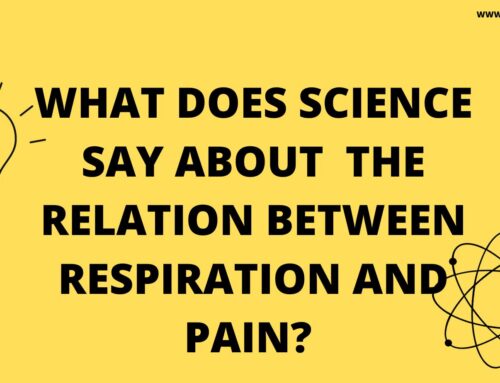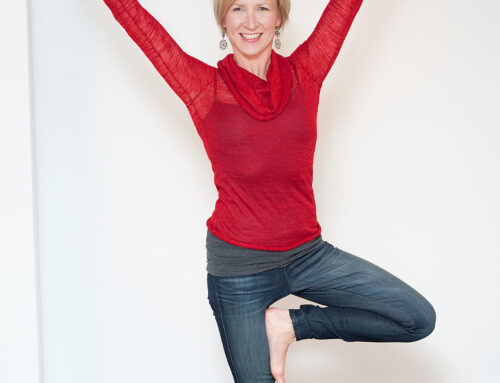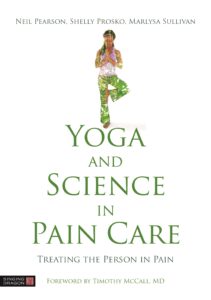 Yoga and Science in Pain Care: Treating the Person in Pain
Yoga and Science in Pain Care: Treating the Person in Pain
Co-edited by Neil Pearson, Shelly Prosko and Marlysa Sullivan.
Foreword by Timothy McCall, MD.
Contributing authors: Neil Pearson, Shelly Prosko, Marlysa Sullivan, Joletta Belton, Steffany Moonaz, Matthew J Taylor, Matt Erb, Lori Rubenstein Fazzio, Michael Lee, Tracey Sondik, Antonio Sausys.
By Singing Dragon Publishers.
We are extremely excited to bring you this unique and much needed book about the integration of pain, yoga and science. There is a big shift towards using and accepting yoga as a therapeutic intervention in pain care. With the high prevalence and global burden of chronic pain worldwide, the opioid issues and the lack of comprehensive resources available that provide health practitioners with other options, this book fills a gap of knowledge that offers non-pharmacological, non-invasive clinical treatment options.
Our book is meant to explore the complexity of the pain experience. Many respected and esteemed contributors weave together science, research, yoga theory and yoga practices in working with people experiencing pain. Each chapter explores a component of pain including scientific and medical understandings, the psychology of pain and the emerging theories in the biopsychosocial-spiritual model of care.
An essential and often overlooked part of pain rehabilitation is listening to, working with, learning from, and validating the person in pain’s lived experience. Our book expounds on the movement towards a more patient-valued, partnership-based biopsychosocial-spiritual model of healthcare where the patient is an active and empowered participant, as opposed to a model where the healthcare provider is ‘fixing’ the passive patient. It also explores how practitioners can address the entire human being in pain, and how to include the person as an expert for more effective and self-empowered care.
This book is intended for:
- Practitioners including yoga therapists and healthcare practitioners interested in integrating yoga with their persistent pain population to expand their approaches in clinical practice
- Yoga teachers interested in understanding aspects of the science behind yoga and pain
- Medical/healthcare professionals who want to better understand pain or want to integrate yoga and mind/body practices
- Mind/body contemplative practitioners/researchers/clinicians who want to better understand pain science and how yoga as a mind/body practice works with people in pain
- Yoga practitioners or integrative health consumers who want an in depth read with practical knowledge in this field.
This book is suited for:
- Course study for yoga therapist programs and medical university/college programs
- Schools that have mind/body programs as stand-alones or as part of medical programs and other mind body institutions.
- People suffering from pain, particularly those keen about learning more about the benefits of integrating pain science and yoga.
“Our hope is that you will read this book to gain a deeper appreciation and understanding of pain, people in pain, and how to help people living in pain. Accumulating more information, clinical skills and techniques is important, but a deeper understanding and ongoing exploration of the complexity of pain is required. Use this book as a first step. Take time to learn more. Then take more time to consider what you have learned.
We also hope that this book will help bring together yoga therapists and health professionals. There is value of blending science and yoga therapy in pain care – for the person in pain, for the health professional and for the yoga professional.
Maybe this book will even impact research. Sometimes clinicians seeing certain patterns in patients or in treatment are motivated to research a new theory. Sometimes budding researchers learn of new connections they had not considered or that were previously outside their typical area of expertise. Pain and pain care are expansive topics that will benefit from looking at commonalities across related fields, while people in pain will benefit from sharing and integrating the knowledge and practice between health care and yoga.”
~Pearson N, Prosko S, Sullivan M. (2019). Yoga and Science in Pain Care: Treating the Person in Pain. London, UK: Singing Dragon Publishers.
**Join our online Book Club Webinar Series, featuring all chapter contributors!
For more details and to sign up to gain lifetime access to all chapter recordings CLICK HERE.
Or, to access a chapter webinar recording of your choice, a la carte, CLICK HERE.
Contributing authors and chapters include:
The Lived Experience of Pain – Joletta Belton
Current Research in Yoga and Pain – Steffany Moonaz
The Current State(s) and Theor(y)ies on Pain Management (sic) – Matthew J Taylor
Yoga and Yoga Therapy – Neil Pearson, Marlysa Sullivan, Shelly Prosko
Pain Biology and Sensitization – Neil Pearson
Polyvagal Theory and the Gunas: A Model for Autonomic Regulation in Pain – Marlysa Sullivan, Matt Erb
Integrating Pain Science Education, Movement and Yoga – Neil Pearson
Breathing and Pranayama in Pain Care – Shelly Prosko
Body Awareness, Bhavana and Pratyahara – Lori Rubenstein Fazzio
Ingredients for Pain Care: Nutrition and Yoga – Matt Erb
Transforming Psycho-emotional Pain – Michael Lee
Pain, Addiction and Yoga – Tracey Sondik
Pain, A Loss to be Grieved – Antonio Sausys
Compassion in Pain Care – Shelly Prosko
Connection, Meaningful Relationship and Purpose in Life: Social and Existential Concerns in Pain Care – Marlysa Sullivan
If you’d like to learn more about us, here are our short bios for you to review:
EDITOR / AUTHOR BIOS:
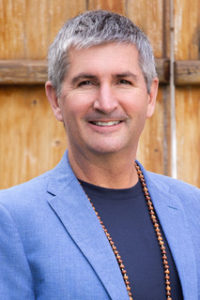 Neil Pearson, PT, MSc (RHBS), BA-BPHE, C-IAYT, ERYT500
Neil Pearson, PT, MSc (RHBS), BA-BPHE, C-IAYT, ERYT500
Neil Pearson is a physiotherapist, and Clinical Assistant Professor at University of British Columbia. He is an experienced yoga teacher, a yoga therapist and creator of the Pain Care Yoga training programs for health professionals and yoga therapists. Neil is founding chair of the Physiotherapy Pain Science Division in Canada, recipient of the Canadian Pain Society’s Excellence in Interprofessional Pain Education award, author of a conversational patient education book, and faculty in multiple yoga therapist training programs. Neil develops innovative resources, collaborates in research and serves as a mentor for health professionals and yoga practitioners seeking to enhance their therapeutic expertise.
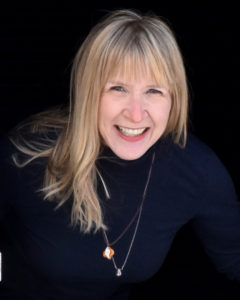 Shelly Prosko PT, C-IAYT
Shelly Prosko PT, C-IAYT
Shelly is a physiotherapist, yoga therapist, educator and respected pioneer of PhysioYoga www.physioyoga.ca. She advocates for the integration of yoga into modern healthcare with a focus on enhancing care for people suffering from persistent pain, pelvic health conditions and professional burnout. She teaches at universities and yoga therapy schools, presents at international conferences, contributes to academic research, provides mentorship to health professionals and offers onsite and online continuing education courses on a variety of topics. Shelly maintains a clinical practice in Sylvan Lake, Canada and believes that cultivating meaningful connections, compassion and joy can be powerful contributors to recovery and well-being.
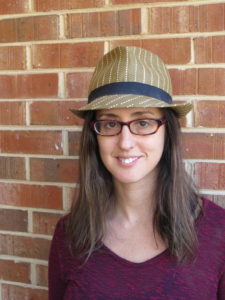 Marlysa Sullivan, PT, C-IAYT
Marlysa Sullivan, PT, C-IAYT
Marlysa Sullivan is a physical therapist and yoga therapist specializing in working with people living with chronic pain conditions. She is a professor at Maryland University of Integrative Health in the Masters of Science in Yoga Therapy as well as Emory University where she teaches the integration of yoga into physical therapy practice. Her research interests focus on developing an explanatory and theoretical framework for yoga therapy to assist its utilization in both research and clinical contexts. She is actively involved in helping grow the profession of yoga therapy through international collaborations and teaching.
CHAPTER CONTRIBUTOR BIOS:
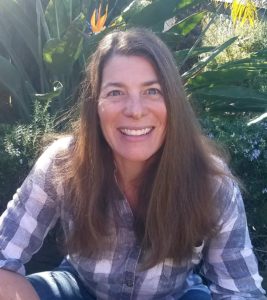 Joletta Belton
Joletta Belton
Joletta Belton is cofounder of the nonprofit organization the Endless Possibilities Initiative where their mission is to empower people living with pain to live well. They provide experiential learning retreats and workshops for people living with pain as well for healthcare professionals. Jo also has a blog, MyCuppaJo.com, where she shares her story through the lens of science in order to give hope to others living with pain and lend valuable insights into the lived experience of pain and recovery to health professionals.
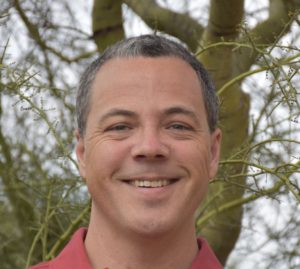 Matt Erb, PT
Matt Erb, PT
Matt Erb is a physical therapist with a focus on mind-body integrated care. He has specialization in chronic pain conditions including headache and migraine. He is a leader in translating the construct of integrative healthcare into rehabilitation therapy practice and is an advocate for equipping therapists to safely support and work with the whole person experience. He has a deep appreciation for yoga, the wisdom traditions, and indigenous teachings. Matt is faculty with The Center for Mind-Body Medicine, founder of Embody Your Mind, and maintains a clinical practice in Tucson, AZ.
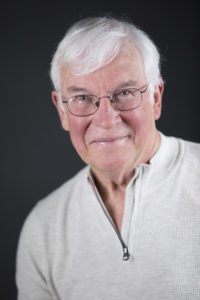 Michael Lee, M.A., Dip.Soc.Sci., C-IAYT
Michael Lee, M.A., Dip.Soc.Sci., C-IAYT
Michael Lee is the Founder of Phoenix Rising Yoga Therapy, a leading edge yoga based modality for psycho-emotional well-being, which is an IAYT accredited program. Michael’s conference keynote presentations include the IYTA Conference in Singapore, IAYT Conference 2016, Yoga Journal Conferences, Family Therapy Networker, 2018 Yoga Australia, 2018 Japan Yoga Therapy Conference, and Inaugural Global Consortium on Yoga Therapy in 2018. Michael is the author of two books, Phoenix Rising Yoga Therapy and Turn Stress Into Bliss and a contributing author in the APA published text Movement and Expressive Techniques in Clinical Practice and the recently published Yoga Therapy and Integrative Medicine: Where Ancient Science Meets Modern Medicine. Michael also offers programs for Psychotherapists and professionals wanting to apply a yoga based embodied mindfulness approach to therapy and life change, and teaches in various locations around the world.
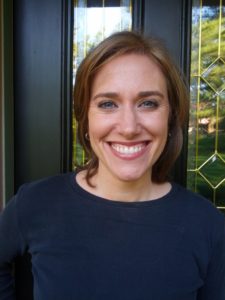 Steffany Moonaz, PhD, C-IAYT
Steffany Moonaz, PhD, C-IAYT
Steffany Moonaz is a yoga therapist and researcher in Baltimore, MD. She currently serves as Director of Clinical and Academic Research at the Maryland University of Integrative Health, which offers the only Masters of Science in Yoga Therapy in the United States. She is the founder and director of Yoga for Arthritis, which offers yoga programs and trainings for people with arthritis and the professionals who serve them. Her first book, Yoga Therapy for Arthritis: A whole person approach to movement and lifestyle was released by Singing Dragon Press in 2018.
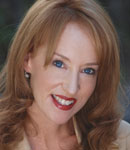 Lori Rubenstein Fazzio, PT, DPT, MAppSc, C-IAYT
Lori Rubenstein Fazzio, PT, DPT, MAppSc, C-IAYT
Dr. Lori Rubenstein Fazzio practices integrative physical therapy and yoga therapy in her private practice in Los Angeles www.mosaicpt.com. She has been compassionately helping people with persistent pain since the 1980s and her expertise is frequently featured in news and magazine articles across the country. She is on faculty in the Yoga Studies graduate and extension programs at Loyola Marymount University and is a lifelong student and practitioner of yoga and compassionate care.
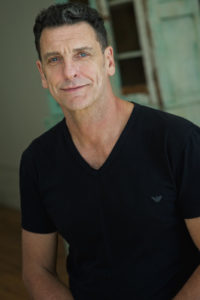 Antonio Sausys, MA, IGT, CMT, C-IAYT
Antonio Sausys, MA, IGT, CMT, C-IAYT
Antonio Sausys is a somatic psychologist and yoga therapist specializing in grief counseling and therapy. Antonio presents his work both nationally and internationally at Schools and Universities and leads retreats at Ashrams, Retreat Centers and Yoga Studios, is a member of the World Yoga Council, the founder and Executive Director of ‘Yoga for Health’ the International Yoga Therapy Conference and a TV host for YogiViews. He is the author of Yoga for Grief Relief: Simple Practices for Transforming Your Grieving Mind and Body (New Harbinger).
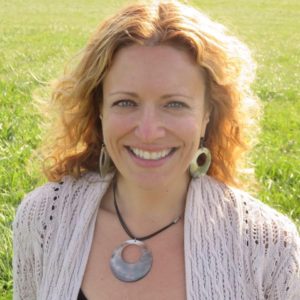 Tracey Sondik, Psy.D., C-IAYT, E-RYT-500
Tracey Sondik, Psy.D., C-IAYT, E-RYT-500
Tracey Sondik is a licensed clinical psychologist and certified C-IAYT yoga therapist with an expertise in neuropsychological assessment, trauma-informed therapies, positive behavioral support plans, and integrative medicine including the use of yoga and mindfulness for mental health. She has authored several publications and book chapters around holistic behavioral treatment for mental health conditions. Tracey is an Assistant Clinical Professor at Yale University Department of Psychiatry, and adjunct faculty member at University of Hartford Graduate School of Professional Psychology in Hartford, CT and Maryland University of Integrative Health Master’s of Science Yoga Therapy program in Laurel, Maryland.
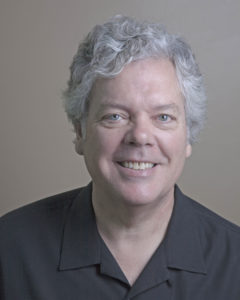 Matthew J. Taylor, PT, PhD, C-IAYT
Matthew J. Taylor, PT, PhD, C-IAYT
Matthew J. Taylor creates and shares resources to incorporate smart, safe yoga for yoga professionals and conventional medical professionals. His leadership in the field of yoga risk management, as well as an expert legal witness, make him an expert in yoga safety and injuries. He was president of the International Association of Yoga Therapists when the professional development strategy was established and continues to serve in numerous capacities. His books, “Fostering Creativity in Rehabilitation” and “Yoga Therapy as a Creative Response to Pain” and over 30 publications have been the vanguard in integrative rehabilitation.
FOREWORD:
Timothy McCall, MD is the bestselling author of Yoga As Medicine, and a co-editor and contributor to the medical textbook, The Principles and Practice of Yoga in Health Care. Yoga Journal’s medical editor since 2002, Dr. McCall also serves on the editorial board of The International Journal of Yoga Therapy. He lives in Burlington, Vermont and lectures and teaches yoga therapy seminars around the world. His latest book is Saving My Neck: A Doctor’s East/West Journey Through Cancer. See DrMcCall.com
To order a copy of the book:
UK and International:
U.S. and International:
Also available for purchase by any retail or independent bookstore, including, but not limited to, Barnes & Noble, Indie Bound.
Canada:
**Join our online Book Club Webinar Series, featuring all chapter contributors!
For more details and to sign up to gain lifetime access to all chapter recordings CLICK HERE.
Or, to access a chapter webinar recording of your choice, a la carte, CLICK HERE.
We sincerely hope you enjoy and find immense value in our collaborative project.


